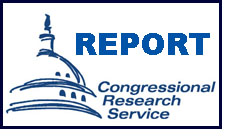 According to the New York Times skews paper, the Federal Bureau of Investigation (FBI) has asked the Federal District Court for the Central District of California to vacate its order to compel Apple to find a way to unlock the Apple iPhone 5C used by the San Berdo Two Islamist terrorists.
According to the New York Times skews paper, the Federal Bureau of Investigation (FBI) has asked the Federal District Court for the Central District of California to vacate its order to compel Apple to find a way to unlock the Apple iPhone 5C used by the San Berdo Two Islamist terrorists.
OpenCdA is not surprised at this outcome. As we observed in a comment appended to our February 26, 2016 Apple Bites, Part 2 post:
“On the other hand, don’t overestimate the quality of Apple’s or any other product’s engineering and design people. People in those occupations often fall in love with their product and become blind to the vulnerabilities that they have inadvertently (and often carelessly and negligently) engineered in. When confronted with incontrovertible evidence of a major vulnerability, everyone from the lowest snuffy design engineer up through their lying lawyers and the CEO in another country will deny the proof proves what it clearly does prove.”
Neither are we surprised that Apple’s CEO Tim Cook now wants the FBI to tell Apple what the vulnerability is so Apple can fix it.
Good luck with that.
It is not up to the FBI to use taxpayer money to identify and exploit the vulnerability your whizbang engineers stated out of ignorance or intention didn’t exist, then reveal it to you so Apple can gain a significant advantage over competitors (not to mention wiping the substantial egg off Apple’s corporate face).
Neither is it up to the FBI to compromise what may be a very effective intelligence and counterintelligence tool which it or one of its contractors developed in response to Apple’s denial.
We suspect the FBI and the rest of the Intelligence Community will consider giving Apple what it wants pursuant to a still-evolving Vulnerabilities Equities Process, but only after the value of the information to others has perished.
Or maybe Tim Cook really is a 21st century skunk … ? After all, the skewspaper article didn’t identify the company which did the break in.
 More than a few people have scoffed at the Federal Bureau of Investigation’s (FBI) apparent inability to independently defeat the zero day safeguard designed and built into the Apple iPhone 5C used by the San Berdo Two Islamist terrorists.
More than a few people have scoffed at the Federal Bureau of Investigation’s (FBI) apparent inability to independently defeat the zero day safeguard designed and built into the Apple iPhone 5C used by the San Berdo Two Islamist terrorists.
